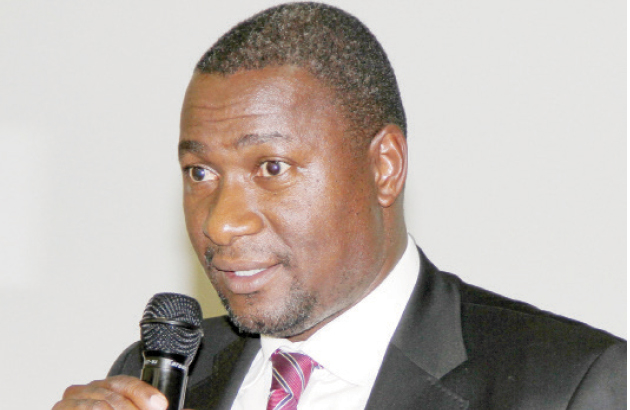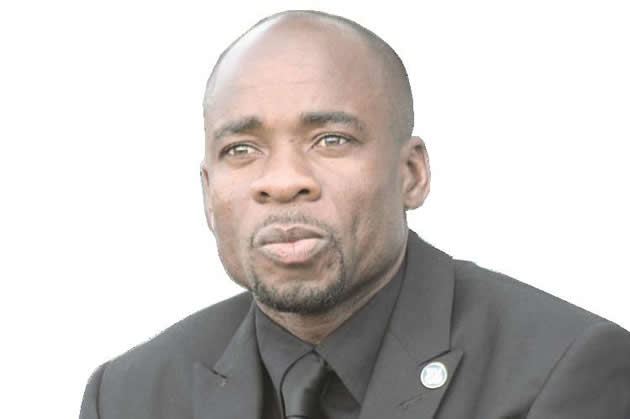Telecel survival chances ‘bright’: Supa

Temba Dube Deputy News Editor
TELECEL Zimbabwe’s chances of surviving as a mobile network service provider are “bright”, a minister said yesterday despite the company being given 30-days to wind up business.
Information and Communication Technology Minister Supa Mandiwanzira met with directors of VimpelCom, who hold a 60 percent stake in the company, before giving his upbeat assessment of how things had gone on Twitter.
“Just finished a very positive meeting with VimpelCom. It would appear the future of TZ is orange, it’s bright,” he said.
Reached by phone last night, Mandiwanzira declined to elaborate.
“I won’t say anymore. I won’t elaborate. Don’t ask me questions because I’m not in a position to say more,” said Mandiwanzira.
The Postal and Telecommunications Regulatory Authority of Zimbabwe (POTRAZ) last week gave the mobile service provider 30 days to wind up business.
The government blacklisted Telecel for operating without a licence and failing to comply with the country’s indigenisation laws which require large foreign-owned companies to cede a majority stake to locals. Telecel’s licence stipulates that foreign investors can own no more than 40 percent of the company.
Netherlands-based VimpelCom owns 60 percent of Telecel through its Egyptian unit, Orascom, while local investors own 40 percent.
On Monday, appearing before an ICT parliamentary committee, Mandiwanzira said Telecel could avoid closure by moving to address the government’s concerns.
Telecel last week issued a statement saying the cancellation of its operating licence was unfair and unwarranted.
“Telecel and its global shareholders are taking immediate action both locally and internationally to challenge this decision,” the company said.
“Telecel has made every effort to comply with all legal and governmental requirements in Zimbabwe, and objects to this treatment in the strongest terms.”
There was evidence yesterday that Telecel had moved to internationalise its dispute with the government. In a letter to Finance and Economic Development Minister Patrick Chinamasa on April 29 through its lawyers Gibson, Dunn and Crutcher LLP, the company threatened to take the matter before the International Centre for Settlement of Investment Dispute if it is not resolved amicably within six months.
The letter was also copied to President Robert Mugabe, Youth Development, Indigenisation and Empowerment Minister Christopher Mushowe, Information Communication Technology, Postal and Courier Services Minister, Supa Mandiwanzira and Postal and Telecommunications Regulatory Authority of Zimbabwe acting director general Baxton Sirewu.
Telecel accused the government of breaching protections guaranteed under bilateral agreements. The company claims Zimbabwe is in breach of an agreement between the Swiss Confederation and Zimbabwe concerning the Reciprocal Promotion and Protection of Investments, also known as the Swiss Treaty, signed on August 15, 1996, which entered into force on February 9, 2001, and the agreement on encouragement and reciprocal protection of investments between Zimbabwe and the Kingdom of the Netherlands, or the Dutch Treaty, signed on December 11, 1996, which entered into force on May 1, 1998.
“The government and Potraz have deliberately ignored good faith compliance with local indigenisation laws, the history of TZ and all attempts to divest TZ, in order to unlawfully expropriate the investment through the improper cancellation of the licence without the provision of prompt, adequate and effective compensation and to force a ‘sale’ to expropriate the company,” reads part of the letter.
Telecel has since the issuing of the 30-day ultimatum last week been sending messages to its subscribers assuring them they would not shut down.
It has even offered to cede 11 percent of VimpelCom’s shareholding to its workers, to go some way to meet the indigenous empowerment requirement.
Mandiwanzira last week said Global Telecom Holdings who are the 100 percent shareholders of Telecel International had also made an offer to the government to buy the 60 percent shareholding in Telecel.
The minister said Telecel was operating without a licence, after it failed to meet payment terms for the $137.5 million required from mobile service providers.
Telecel disputed the statement saying it had negotiated with then Transport and Infrastructural Development Minister, Nicholas Goche, to pay the money over seven years.
Econet paid the money in full, on the other hand.
“Telecel would like to put straight the record on the factually incorrect statements circulating that it failed to pay for its licence renewal,” read a statement from the company.
“The truth is that Telecel is currently in compliance with its obligations as per the Licence Renewal Agreement entered into between Telecel, Potraz the regulator and the government of Zimbabwe as represented by the Ministry of Finance and the Ministry of Transport and Communications.”
Telecel said when it was indicated that all operators would have to pay $137.5 million to renew their operating licences, Telecel and Econet negotiated with the government to offset the licence fees against the interconnection fees owed by the government-owned entities TelOne and NetOne.
“Telecel was allowed to offset $12 million whilst the other operator, who was owed a much larger amount, was also allowed to offset. An agreement was reached and signed on August 6, 2013.”
The mobile service provider said it immediately made the cash payment through its bankers. It went on to blame a local bank for failing to release $6 million which was part of the payment.
They said the bank has not released the money up to now, although it insists it has always had the funds in its accounts.
“Telecel has honoured all subsequent licence fees payment obligations as per the agreed payment plan and is currently up to date.
“The next instalment is due in June of this year. At no time was Telecel unable to pay for its agreed commitments,” added the statement.










Comments